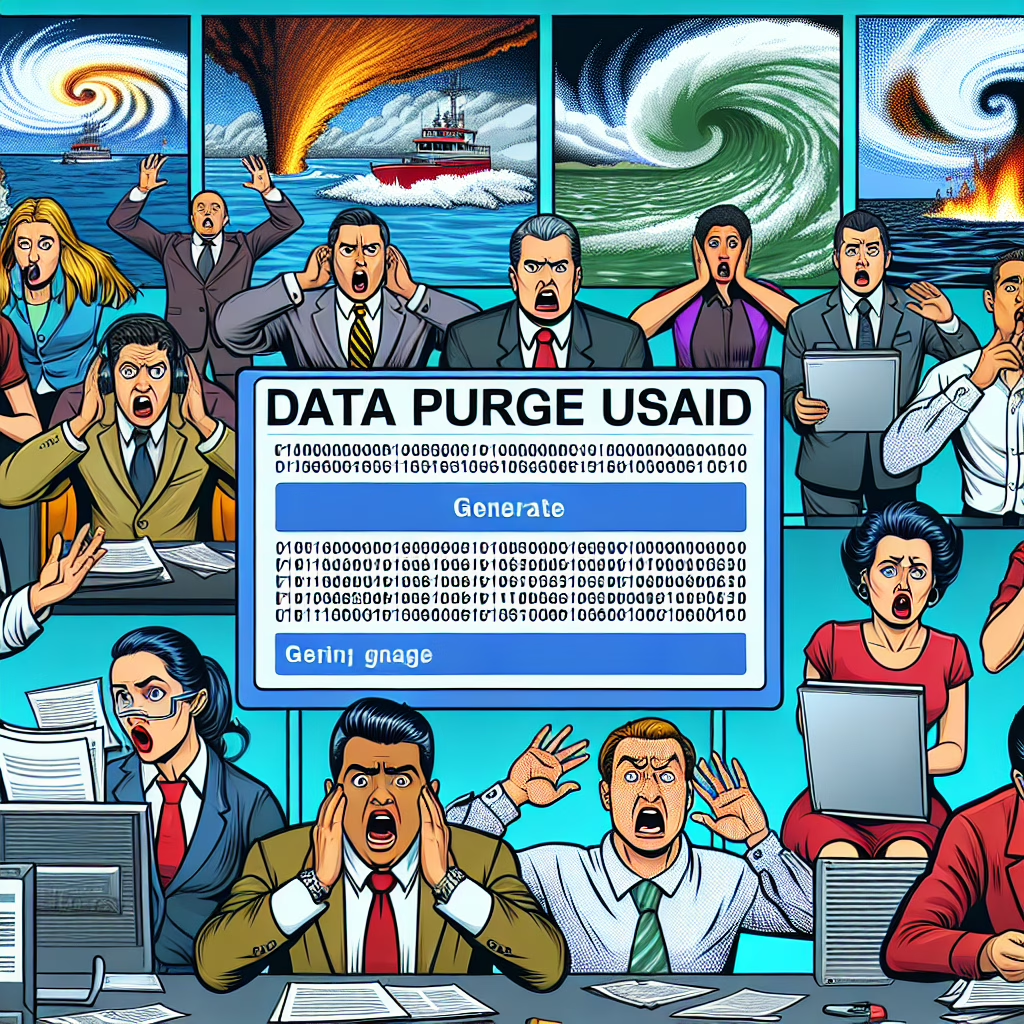In an era where information flows like a rushing river during a hurricane, the notion of a data purge might sound like the plot twist in a disaster movie. Yet, when it comes to Trump’s administration and its approach to disaster response, this plot has become a stark reality. The decision to streamline, or rather eliminate, vital data from the USAID website has ignited debates that echo the intensity of the storms themselves. Buckle up; we’re diving into this tempest of statistics!
Data Purge: The Storm Before the Calm?
Imagine facing an imminent hurricane, and instead of gathering crucial weather updates, your local meteorologist decides to toss out their most reliable forecasting tools. That’s somewhat akin to what happened when the Trump administration made the bold move to cut back on the data available on USAID’s website. Critics howled louder than the gale-force wind with concerns over the implications of this approach.
Why does this matter? Data is essential for understanding effective disaster response strategies. Without accurate information, agencies scramble like a cat trying to avoid water! The absence of vital statistics on food security and disaster relief could lead to inadequate responses in times of need, potentially affecting countless lives.
The Ripple Effect of Missing Data
When data disappears, it creates a ripple effect—much like tossing a stone into a still pond. NGOs and other organizations rely heavily on this information to assess where aid is needed most urgently. If they can’t determine how many people face famine or flooding, it’s like navigating a boat without a compass in the middle of a storm, making effective rescues nearly impossible.
- Incapacitated decision-making: Without data, agencies may fail to act quickly.
- Misallocation of resources: Aid might end up in areas where it is not needed.
- Reduced trust: Agencies risk losing credibility when information is unreliable.
The decision to remove certain datasets was framed by some as a necessary simplification of USAID’s resources. However, others argue that it’s more akin to throwing the baby out with the bathwater. Imagine trying to bake a cake without flour—it’s possible, but it likely won’t yield something anyone wants to eat!
The Importance of Accurate Information
Now, in 2025, we find ourselves at a crossroads regarding how data influences disaster management. Accurate information isn’t just useful; it’s critical for ensuring that those in need receive timely assistance. During floods or impending famines, having access to updated statistics about affected regions can mean the difference between life and death.
The effectiveness of organizations like USAID hinges entirely on their access to comprehensive datasets. It’s not just about numbers; it’s about real lives impacted by natural disasters. As we’ve seen time and again, ignoring facts can lead us down a treacherous path, much like attempting to surf a tsunami without a surfboard!
What Happens Next?
What lies ahead for disaster response in the United States? We should learn from these missteps and embrace transparency in our data practices. If we want effective responses during crises, we must cultivate an environment where information thrives rather than wilts under bureaucratic pressure.
There may be hope! With increasing awareness surrounding these issues, there is a growing demand for accountability and better practices within government agencies. Citizens are becoming more vigilant and proactive in questioning, “What are they hiding? Is there more beneath the surface?” This scrutiny is essential for promoting effective governance.
Let’s Keep Talking About Disaster Response
As we continue navigating through this unpredictable landscape of disaster management, let’s remember that informed citizens can create significant change. Engage with your local representatives; let them know you care about accurate data being accessible during times of crisis!
What do you think about the recent changes regarding USAID’s data? Are we steering toward clearer skies or deeper waters? Share your thoughts below—we’d love to hear from you!
Special thanks for original insights provided by The Verge. Your contributions keep discussions vibrant and insightful!

